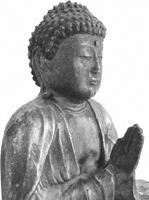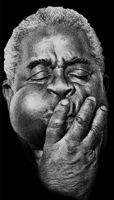Decoded (42 page)
Authors: Jay-Z
Tags: #Rap & Hip Hop, #Rap musicians, #Rap musicians - United States, #Cultural Heritage, #Jay-Z, #Entertainment & Performing Arts, #United States, #Music, #Rich & Famous, #Biography & Autobiography, #Genres & Styles, #Composers & Musicians, #Biography

6.
The “jot it down” line is meant to show that I’m talking to a reporter, giving him my “ghetto point of view.”

7.
Magazines, even hip-hop magazines, would reduce a song to a rating, a number of mics or stars or some other system. But I always wondered how they could try to pin down and attach a rating to music that was really helping people understand their own lives. I always thought that critics should factor in the truthfulness of the rhyme. Truth is a constraint. It’s easy to make up a complete fantasy in a song. Trying to rhyme and be clever and witty and tell a coherent story or talk about a coherent concept and stick to something true about life is difficult. But it’s that element of truth that makes the songs deeper than just entertainment, that make the music a light that can help people see their way through a hard life.
8.
This is meant both literally and figuratively—the critic I’m imagining here is a suit-and-tie sort of guy, who literally doesn’t dress like me. But he also can’t wear the life I’ve worn, and if he tried to step in my shoes, walk the streets I walked, he’d lose that tie and shirt, not just his clothes but the smug attitude they represent.
9.
Here’s the dark side of hustling—actually, not the dark side, which has its own glamour, but the pathetic side of the young hustler’s life: ashy knuckles, pockets full of lint, broke, can’t pay rent.
10.
It’s when you take the hustler down a notch that you can start to relate to him, even if it’s still complicated. The pocket that was once filled with lint is now filled with “hope”—which is what the crack is to this kid. It’s contraband to the law and poisonous salvation to the crackhead, but to the hustler, it’s a way out.
11.
Southpaw boxers are dangerous because they seem awkward to people used to boxing righthanders. It’s a great metaphor for the way those of us from the hood were able to take on the world. We came at shit from a different angle, snuck up on people, surprised them. We turned the thing that made us outcasts into our advantage.
12.
Of course, my mother didn’t want me on the streets, but it was hard to argue with a young kid who’s actually contributing to a household that’s stretched thin, even if he’s into some dangerous shit to do it.
13.
I didn’t have much of a childhood. By the time I was a teenager, I was living in another city, far from home, working.
14.
After so much of the song is about stripping the life of any sense of glamour and pointing out the real life of the kid in the ghetto, I turn it around to a defiant, triumphant note with this series of raises: raising green up (making money), raising my middle finger to the critics who don’t get it, and raising my face to the sky to talk to my nigga Big.
15.
This was a conversation Big and I had many times before he died. He wanted for me to see what it was like to be at the multiplatinum level, performing in big arenas. The promise appeared in a song I did with him called “Young G’s”:
And I told my nigga Big I’d be multi before I die / It’s gonna happen whether rappin or clappin have it your way.
16.
I love this concept: Instead of being forced into a fucked up choice where you lose either way, choose your own path. The fork in the road I was presented with was either having those pockets full of lint, or pockets full of dope. I went straight—stopped selling drugs—but I also didn’t accept the false choice between poverty and breaking the law. I found my own way through and with my music, I try to help others see their way through it, too.
CAN I LIVE?
1.
Hopelessness and desperation is what you’re supposed to feel in poverty. The drive to escape that hopelessness is, for the hustler, the same thing that drives a drug addict to get high—a need to escape. So here, and in other rhymes, I’m identifying with addicts. An addict doubles down on his pain, and like the hustler feels death or jail couldn’t be much worse than the pain of poverty. So when we come to the table to gamble, it’s with our very lives.
2.
In this line I turn a noun,
bread
(meaning “money”), into a verb,
toast
(meaning “shoot”), which draws out the relationship between money and danger.
3.
Sleeplessness, weariness, and adrenaline are symptoms of paranoia, of engaging in illegal activity in plain sight. “Four fiends away” indicates the distance between me and the street-level action. The implication is that I’m a boss, to some degree buffered from low-level workers who can be easily urged to cooperate with authorities.
4.
The pain of a drug addict is visible. You may or may not have sympathy for him, but he’s wearing his pain. The hustler has armor—money, ambition—that makes his pain less visible, less “quick to see.” But just like a drug addict’s “brain on drugs” the hustler’s brain is similarly fried, preparing for inevitable rainy days (precipitation), planning takeovers, stacking and climbing. The “hardly” is an admission that while the intention is to stack, the reality is often the spending.
5.
Rayful Edmond was a major hustler who appeared on the news coming out of his own helicopter.
6.
This line, “I’d rather die enormous than live dormant,” resonates deeply with my listeners. It’s a take on the “Live Free or Die Trying,” “Liberty or Death” spirit that’s woven into the fabric of what it means to be American. But it’s also about great ambition, and the alternative, which is stagnation. The risk is death, so the reward should have equal gravity, a life lived to the fullest.
7.
“The main event” refers to the reward, the spoils, and, literally, a fight in Vegas. But main event could mean life as much as it means a staged fight. Presidential suites is that Big Willy all grown up—call him William.
8.
“Sick thoughts that circle” is about the interior of my mind. Constantly checking thoughts, separating what’s real from what’s fear and paranoia, what’s a part of the plan and what’s reckless. Before I learned the Law of Attraction I was aware of the power of my thoughts, staying focused, weeding out thoughts that sabotage.
9.
“Immunity” is a shot at white-collar criminals who are as outside of the law as my crew, but it’s also about taking reckless risks that lead to material acquisitions, which were also reckless. Advising to buy a car rather than lease one speaks to my naïveté at the time. Cars lose value the minute they leave the lot.
10.
The Buddhist reference is about stillness, a break from the spending and buying, a retreat to reveal my ultimate goals.

11.
The CBS television network’s logo is a single open eye.
FALLIN’ / FEATURING BILAL
1.
“That” is ambiguous here. The context shows that it refers to the drug game, and of course this is on the
American Gangster
album, which was inspired by Frank Lucas’s rise and fall as a drug kingpin. But it can refer to anything we do that we know, even while we’re doing it, will end badly.
2.
A brick is a serious entry-level weight, a nice score, but not necessarily a lifetime commitment to the Game.
3.
This is the kind of bogus negotiation people normally associate with drug
addicts,
not drug dealers. The theme of this song is the similarity between the users and sellers; they’re on opposite ends of the transaction, but are both addicted to a fix that they know will destroy them.
4.
“Whips” are fast, expensive cars. It might seem redundant to say “new cars, new whips” but “whips” adds a layer of meaning and suggestion. For instance, you can make the connection between the word “whip” and the way lust for material items has become almost a slavemaster to the song’s narrator, pushing him forward against his own better judgment. Or the way “whip” makes you feel the speed with which the narrator’s game is rising.
5.
This is a play on the similarity between “ruthless” and “roofless,” as in convertible.
6.
This is about how clear his view of the fight is, but also about how he sees the larger picture of life much clearer now, or thinks he does.
7.
Reference to Nice & Smooth’s “Funky for You”:
Dizzy Gillespie plays the sax / Me myself I love to max / Redbone booties I’m out to wax / Stick-up kids is out to tax.
Dizzy Gillespie played the trumpet, but fuck it, it’s a great rhyme. Premier sampled the line for the chorus of another hip-hop classic, Gang Starr’s “Just to Get a Rep.”

8.
First, this conjures the image of agents in the back of an FBI van looking at their surveillance screen and applauding because you fucked up, and then morphs into the image of a crowd at a movie, yelling at the character on the screen who is about to fuck up.
9.
“Can’t blow too hard” means you can’t show off too much, or your whole life can tumble.
10.
January is the coldest, darkest month of the year, which mirrors the hopeless feeling of being locked down and forgotten by the people on the outside.
11.
Commissary is the prison “store” where prisoners can buy basic items using an account that gets filled by people outside of prison.
12.
The prisoner’s routine is heavy on exercises whose names are like a cruel joke.
13.
The cycle continues.
14.
The implication is that the narrator dumped a good, self-sufficient woman—now getting a college degree—for “arm candy” that gets sweet on whoever’s hot.
15.
Now he’s out of jail, but all he has to fall back on is empty boasting about his old life—problem is, no one gives a shit. It’s like the old ballplayer telling the young boys about how nice he used to be, how he could’ve been a contender—but if you blew it, no one cares.
Other books
Cast of Shadows - v4 by Kevin Guilfoile
A Killer Retreat by Tracy Weber
The Lemoine Affair by Marcel Proust
Deep Green: Color Me Jealous with Bonus Content by Carlson, Melody
Belle De Jour by Joseph Kessel
The Red Siren by Tyndall, M. L.
Solstice Heat by Brown, Leila
Chasing the Dark by Sam Hepburn
Rich Promise by Ashe Barker
Scattered Suns by Kevin J Anderson